Introducing BioCity's indoor vertical veggie garden. This beautiful installation made with reclaimed wine bottles allows you to grow arugula, chard, strawberries, cherry tomatoes and more all year round in your very own home.
Thanks to the craftsmanship and innovation of the folks at Montreal based company BioCity, growing a plethora of veggies at home with little more than a south-facing window has never been easier
As we here at Ecohome know all too well, the 100-mile diet can be a bit tricky in the middle of a Canadian winter, unless you eat a lot of ice cubes. Julien Yensen Martin, founder of Biocity, aims to make that easier with his new hydroponic window system.
Inspired by the Window Farms Project, the BioCity system uses vertical hydroponics to grow plants indoors.

As many of you know, the hydroponic cultivation of plants uses no soil, but instead a closed circuit water supply fortified with nutrients. Obviously, consuming homegrown vegetables can help lighten our footprint on the earth, but the environmental benefits of this system go beyond the elimination of fuel used to transport our consumables.
Growing food hydroponically, given the absence of soil, allows us to grow more food in smaller spaces. For example, without soil a healthy cherry tomato plant can be grown in something as small as a reclaimed wine bottle.
This system also allows users to save water as each closed circuit system can use the same nutrient mix for several days and when the water needs to be changed it can be used again to water potted plants.
The folks at BioCity use a blend of durable materials such as recovered wine bottles, galvanized steel, expanded clay pebbles (endlessly renewable) and wine bottle corks to build their bottle garden system to create a product that is both aesthetically pleasing and functional.
Requirements for the system:
It may be obvious that the single most important aspect to ensure the success of your indoor garden installation will be access to sunlight. A south-facing window with a minimum of 4 hours sunlight is required and more is recommended.
The standard kit is six feet tall (183 cm) with two columns that each hold four plants. The eight inches (20 cm) between the window and the bottles and the ten inches (25 cm) between each bottle allow for air circulation and adequate space for the development of the plants. The system is quite flexible and can be adapted easily to any type of window.
There is a small tank for the nutrient mix at the bottom of each column that will last for one to seven days depending on the number of plants and management of the water supply. Each tank is equipped with a small air pump that circulates the nutrient mix to the top of the column. The nutrient mix then descends by gravity drip through each of the plants until it fills the bottom tank once again.
Electric baseboard heaters (often located under windows), are not an issue to be concerned about. In fact, the plants will respond quite well to the warm temperature as long as it stays below 30 degrees Celsius. The system does not create much humidity, and what does result may be welcome during winter when many homes can become quite dry.
Given the sound of the pumps and resulting gravity drip which will activate every 15 minutes bedroom installation is not recommended.
The system itself requires only about one hour of maintenance per week. The objective was to make BioCity hydroponics as easy as possible. Instructional videos for getting started are included and BioCity staff are available to chat live on-line or by phone.
The BioCity crew say that future developments could include an artificial lighting system for those without adequate sun exposure, an electronic management system, and a less expensive system for DIYers who are happy to invest their own time and labour.
Limited additions of the vertical garden using blue bottles (as they are harder to find used) may also be on the horizon. Wine lovers may also choose to have their system customized with the empty bottles from their most memorable tastings.
 |
|
Vertical window garden © biocity
|


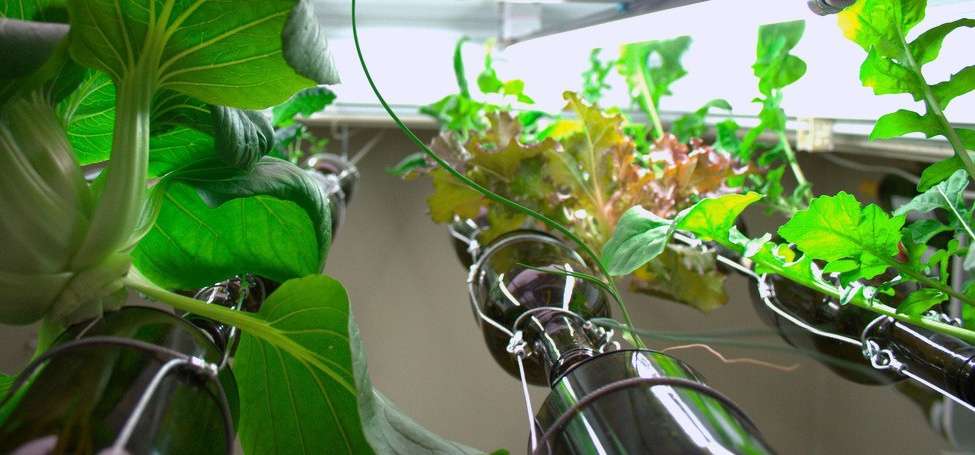













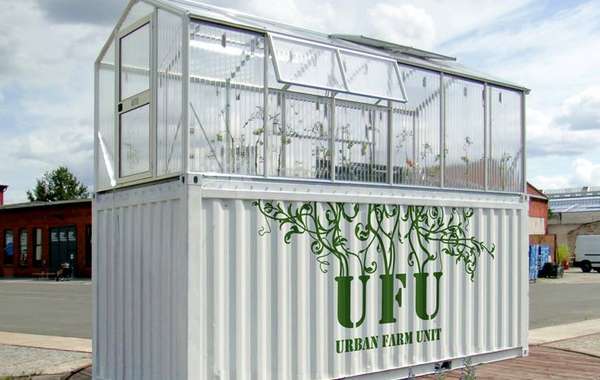
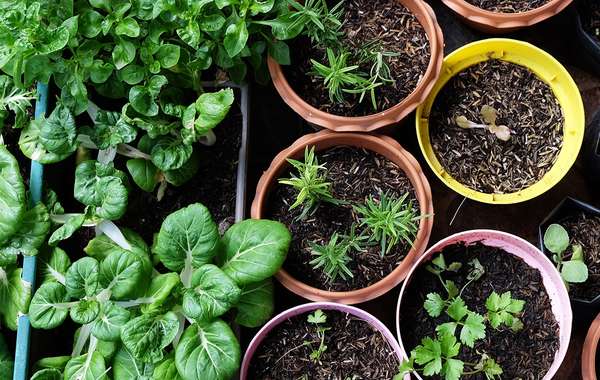

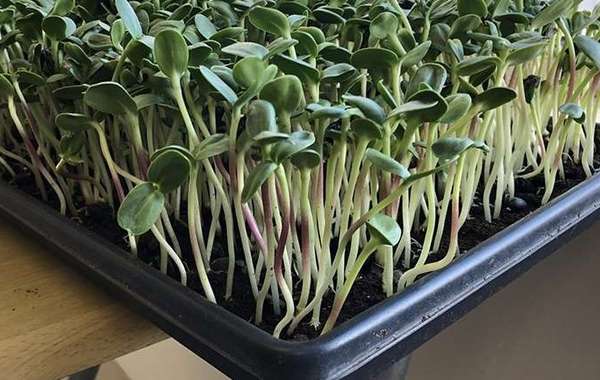
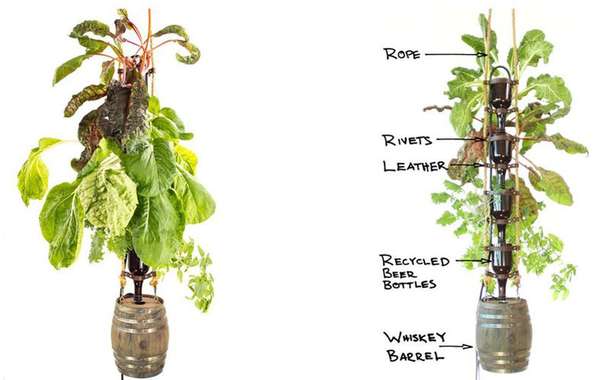
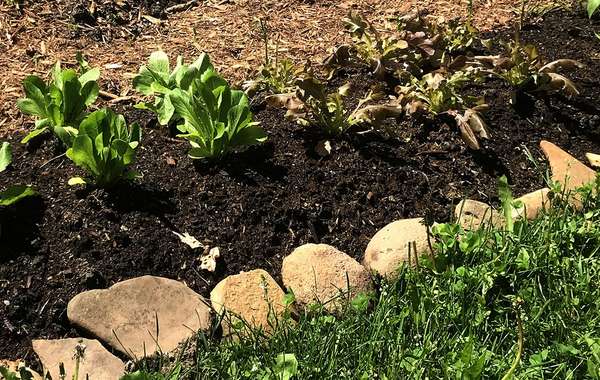
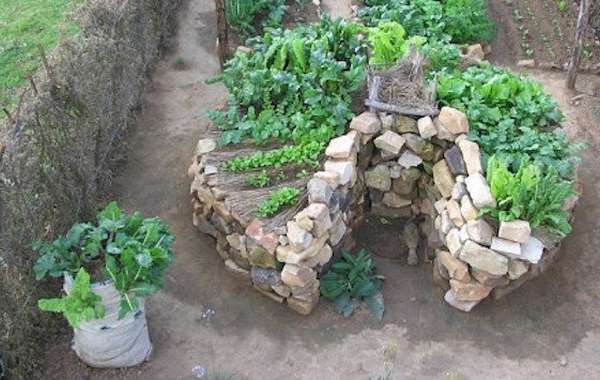
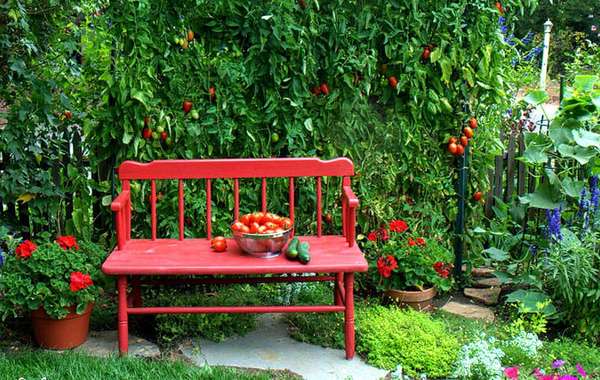
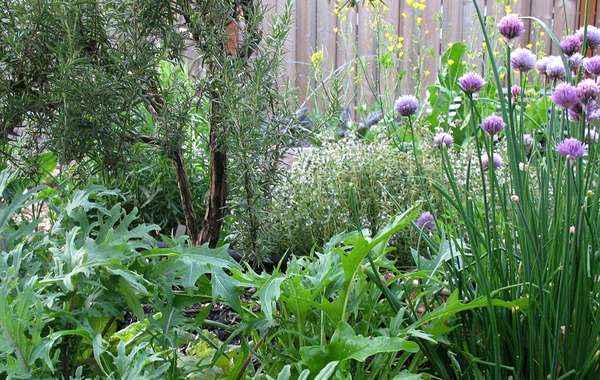
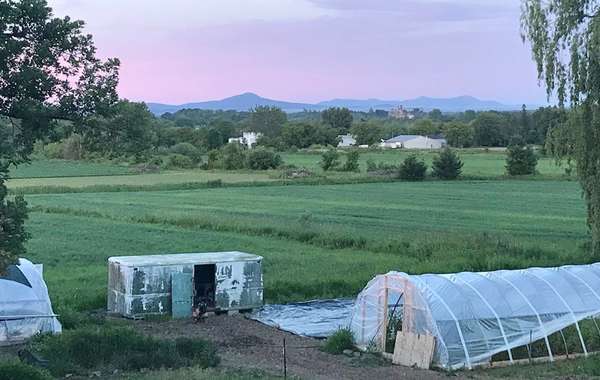

Very nice! thanks
What did you send through the corks to allow the water to flow through to each wine bottle? Anything?
Good Post with Good Ideas :)
I'm building a similar vertical design right now with 1/2 gallon milk jugs. I have found the transparent variety in significantly more abundance than opaque. My concern is algae growing my growth media because light will slightly penetrate the transparent HDPE. Have you had any problems with algae in your system using glass?
Maybe some drops of colloidal silver will prevent the growth of algae.... just and idea, maybe it's worth the try
I know this is a necro comment, but I can't resist. Light tightness is vital for long term hydroponic success. Painting containers white (black is too hot, for south facing windows), blue, yellow or green is a good idea. Using glass is begging for algae issues unless you follow the same protocol. Isabel's colloidal silver thought does work, but unless you take care of the light issue, you'll be fighting a constant, unnecessary battle.